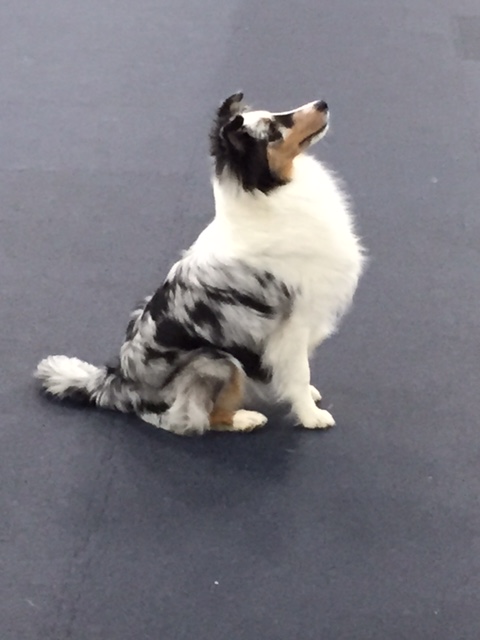|
(Used with permission of Karen Peak, webmaster of Will O’Wisp Shelties)

As with any breed, Shelties have their share of concerns that breeders must be aware of. Many health problems can be screened for and some have genetic tests. A responsible breeder will screen for as many health issues as possible. For those concerns that cannot be screened for right now, if it shows up, the breeding program will be altered. Do not hesitate to ask a breeder what screenings have been done and for documentation.
Here are some of the health concerns in Shelties:
** - can be screened for.
Dermatomyositis (Sheltie Skin Syndrome) - This is seen in many breeds including Collies and Border Collies and can affect skin and muscle. The dog can develop skin lesions that may be confused with allergies, mange, ringworm and other skin issues. Diagnosis requires a skin biopsy. The dog may also show muscle wasting. Or the dog may show both symptoms to some degree. It is genetic and the is no cure for it. Affected dogs should not be bred no matter how minor the problem. Dermatomyositis is a DOMINANT GENE so a dog cannot carry it. The dog either has it or not. The problem is a dog who it heterozygous for the gene may have varying expressions of the problem from very mild and easily missed to quite obvious (DD - dominant homozygous - has it and every pup produced will have it, Dd - Heterozygous - has it and MAY pass it on, dd - homozygous and does not have it). Again, dogs known to have Dermatomyositis should NOT be bred. Dogs related to affected individuals need to have great care taken if they are used in a breeding program. DM can look like mange so ANY skin concern should be biopsied to rule out DM.
Epilepsy (Canine Seizure Disorder) - Seizures can be brought on by many things and can also be genetic. There is no test for CSD and breeders have to be careful not to breed dogs that have had seizures. Until more is known about how it is inherited, relatives of affected dogs should have extreme caution used when considering for breeding. There are several types of seizures: RES (Reactive Epileptic Seizure) is in response to a stress; SES (Secondary) is a result of a brain abnormality; PES (primary) seem to be idiopathic (no known cause) and are considered hereditary. Onset of seizures is generally between one and five years of age. There is no test for CES.
** Hip Dysplasia - This is not just a big dog problem as many people think. HD can affect any breed or cross. It is a genetic problem but it is a polygenetic trait and there is no genetic test for it as of yet. Breeding dogs should pass either OFA (Orthopedic Foundation for Animals)or PennHip (University of Pennsylvania Hip Improvement Program) screening. Breeding unaffected dogs can greatly diminish the chance of HD being passed on.
** Progressive Retinal Atrophy (PRA) - This disease cannot be detected until a dog is an adult and since the disease progresses, annual testing of breeding dogs by a certified vet opthamologist is a must to make certain the dog is not developing it. Dogs should be CERF (Canine Eye Registry Foundation) certified.
** Sheltie Eye - This is another eye problem that Shelties should be screened for. If a dog screens clear then he does not have it. Unlike PRA, Sheltie Eye can be screened for in young dogs. With both PRA and Sheltie Eye, only a vet opthamologist can screen.
** Thyroid - Hypothyroidism is not uncommon and symptoms may include lethargy, weight gain, hair loss, weakness, etc. Blood tests can help determine if a dog is affected.
** von Willebrand's Disease - This is a bleeding disorder that can affect many breeds - including Shelties. There are two main types of vWD and Shelties seems to be affected more by the severe type which can lead to spontaneous bleeding. However, there is a genetic test for vWD.
|